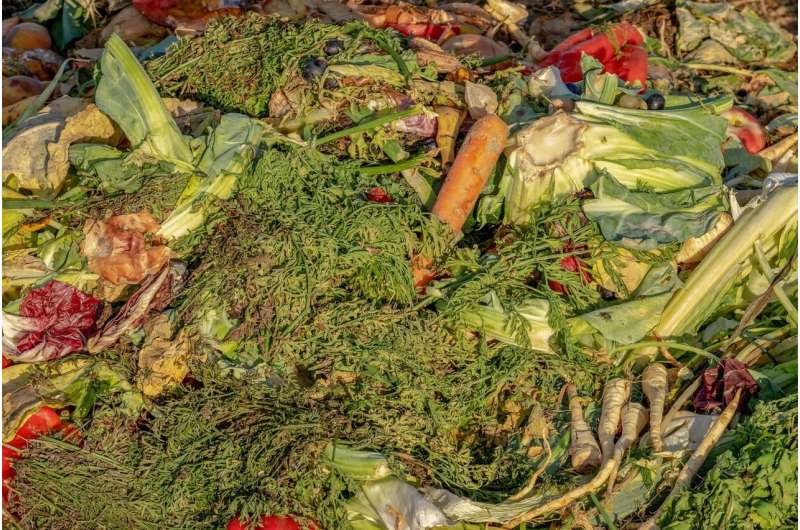This article has been reviewed according to Science X's editorial process and policies. Editors have highlighted the following attributes while ensuring the content's credibility:
fact-checked
proofread
A new doctoral thesis unlocks the potential of fast pyrolysis to tackle waste management

In a world where sustainable solutions are gaining ever-increasing importance, a new doctoral dissertation has illuminated a path toward a greener future. By delving into the complex process of fast pyrolysis of biomass, new insights were gained about how we can harness renewable resources, for example residual products from agriculture and forestry.
Fast pyrolysis is a process in which biomass is rapidly heated to high temperatures in the absence of air (specifically oxygen) to transform bulky agro- and forest-based raw and residual biomass feedstock into mainly liquid bio-oil and small amounts of solid products.
In his dissertation, "Advances in Fast Pyrolysis: Understanding Biomass Decomposition," David Usino, who recently became a Ph.D. in Resource Recovery at the Swedish Center for Resource Recovery at the University of Borås, Sweden, not only unravels the secrets behind biomass transformation, but he also shows practical areas of application to the benefit of both industry and the environment.
"Significant results showed that temperature and residence time could be controlled to influence the primary products formed during fast pyrolysis. Additionally, I explored the interaction effects when different biomasses were co-pyrolyzed or pretreated with dilute acid solutions, which could enhance the formation of specific chemical compounds," he said.
Accurate analysis
The novelty of Usino's work lies in the use of instruments that measures primary reactions, and the ability to accurately analyze the volatile compounds formed. This provides a deeper understanding of the primary reactions during pyrolysis.
"This research is important for several reasons. It sheds light on the possible reaction routes during the primary decomposition of biomass, which can serve as a foundation for further studies in this area. Moreover, it highlights the potential of the production of valuable chemicals through co-pyrolysis or pretreatment with acid solutions. Additionally, by converting waste biomass into useful products, this work contributes to waste reduction and environmental benefits," Usino explained.
The results of his research have the potential to benefit industry by improving the understanding of biomass pyrolysis processes and promoting the production of valuable chemical compounds. It can also have positive implications for society by addressing waste disposal issues and reducing the release of harmful substances into the environment, while at the same time reducing the use of crude oil for chemical production.
Usino says, "I aim to apply the knowledge and skills gained during my Ph.D. project, either in the industry or academia. This can lead to further contributions to sustainable development and solving real-world problems. It has been both rewarding and challenging. It allowed me to grow both personally and professionally. Overall, it has been a wonderful journey that has prepared me for future opportunities in research and development."
More information: Fast pyrolysis of biomass: primary products and reaction pathways. hb.diva-portal.org/smash/record.jsf?pid=diva2%3A1788157&dswid=-5510
















